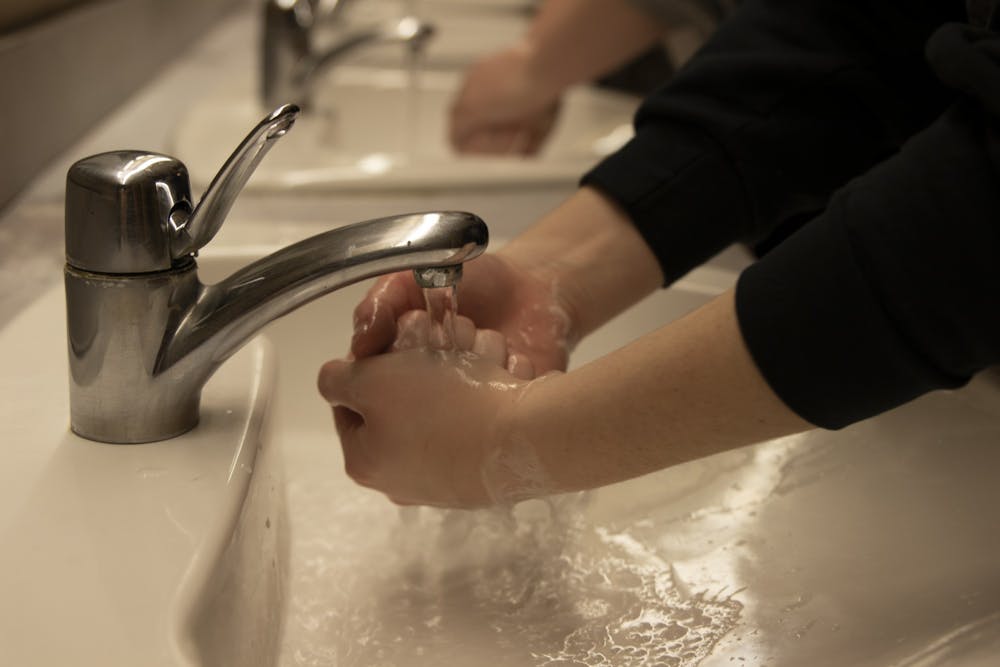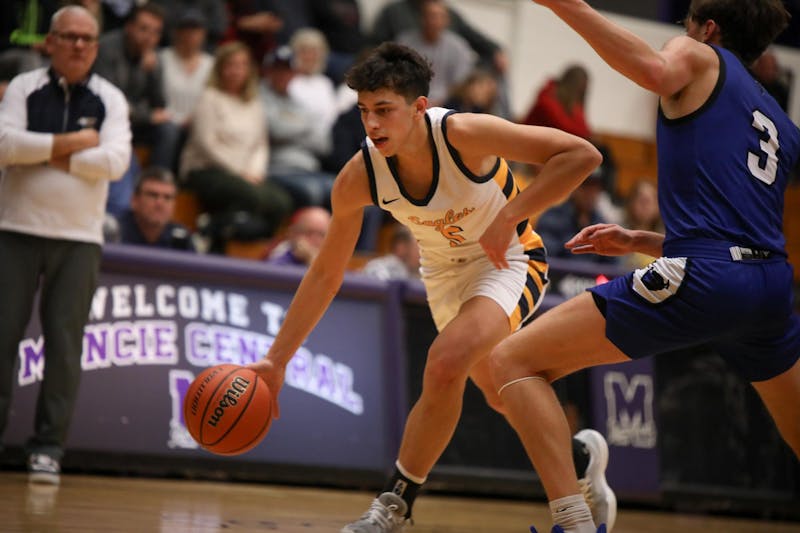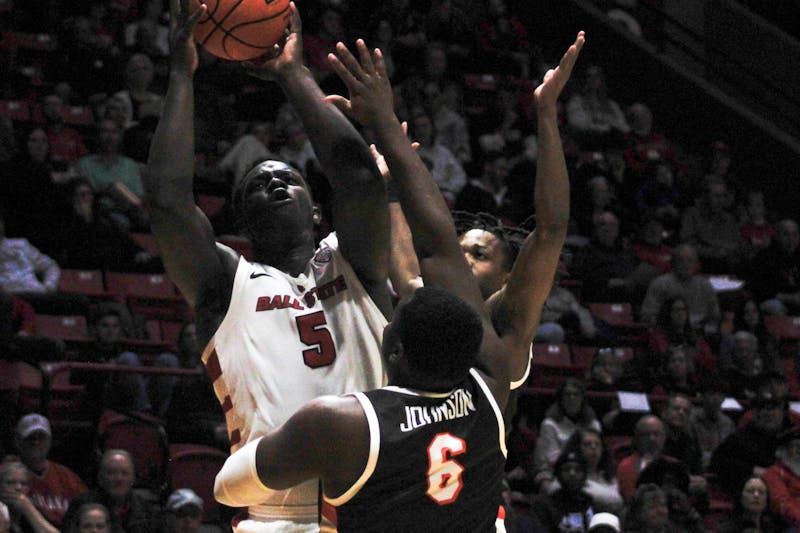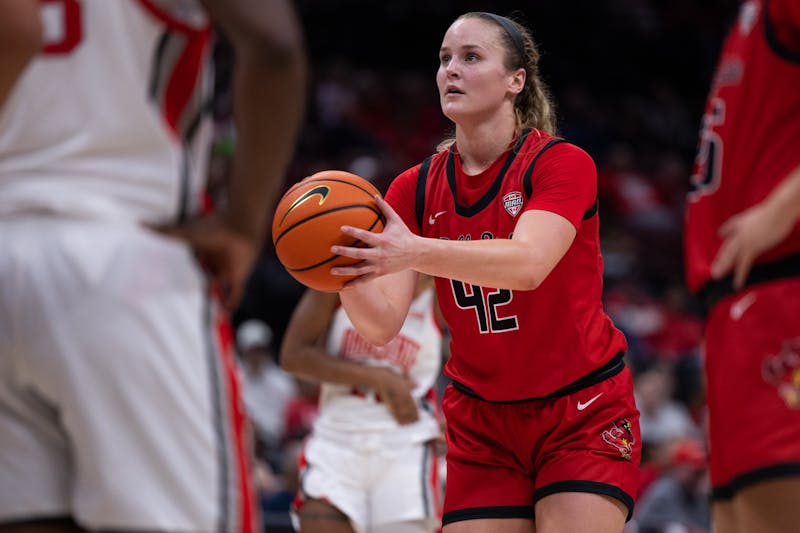Beginning March 16, all in-person classroom instruction for the duration of the spring semester at Ball State has been suspended due to the coronavirus outbreak, said President Geoffrey Mearns in a campus-wide email.
However, he said the university is not directing students to leave campus, and university services and offices will remain open.
In-person classes will be replaced with virtual instruction and other alternative learning options, Mearns said.
Additionally, from March 16 until April 30, Ball State will be suspending all university-sponsored and funded events of 100 people or more. Event organizers, he said, should consider conducting events via alternative technologies.
The university, he said, will continue to monitor athletic activities, practices, and competitions in coordination with the commissioner of the Mid-American Conference, the NCAA, and other member institutions.
In a campus-wide email sent March 5, Susana Rivera-Mills, provost and executive vice president for academic affairs at Ball State, said the university has canceled all summer and fall semester study abroad programs.
Currently, Mearns said, the university hopes to host commencement ceremonies May 2, but will make a final decision at a later date.
Apart from rare circumstances, Ball State has suspended all university-sponsored and funded international, domestic and intra-state travel until further notice.
“I provide this guidance to our campus community in order to help slow and mitigate the spread of COVID-19,” Mearns said. “We understand these steps will cause significant disruption, but we must act in a responsible manner consistent with our University values.”
As of March 11, there were more than 125,000 confirmed COVID-19 cases, 4,600 deaths and 67,000 recoveries due to the coronavirus outbreak worldwide, according to data from the Center for Systems Science and Engineering at Johns Hopkins University. In the United States, there are more than 1,200 confirmed cases, 36 total deaths and eight recoveries.
The Indiana State Department of Health has conducted 43 total tests as of March 10 — 10 of which tested positive for the virus. Zero deaths have been reported in Indiana as of March 10, the most recent date for which numbers were available.
In Avon, Indiana, one elementary school student tested positive for the virus, and a second student is displaying symptoms. Avon Community Schools Corporation decided to close all Avon schools until March 20, according to the school corporation’s website.
Following their spring breaks, Indiana University (IU), Purdue University and the University of Notre Dame will suspend all classroom teaching.
IU’s suspension of classroom teaching will last through April 6 for all its campuses, Purdue’s suspension will potentially last through the end of the semester and Notre Dame will have no form of classroom teaching the week of March 15, followed by virtual or alternative instruction until April 13.
Jagdish Khubchandani, associate chair and professor of health science, said in an email prior to the March 11 email that the university’s decision to suspend travel was appropriate given the medical and legal issues surrounding such programs and the growing threat of coronavirus worldwide.
“I understand the hassle. I had to cancel many of my obligations, but right now, an ounce of prevention is worth a pound of cure,” Khubchandani said.
For now, he said, the Ball State community “should not be worried but certainly be more vigilant about the virus affecting campus.”
“Despite that, I must say that faculty and students should watch out for personal flu-like illness and anyone they suspect could have flu-like illness,” Khubchandani said. “In such cases, ensure that this person is made aware of some similarities between seasonal flu and coronavirus and is given all support to seek healthcare. Compared to many other community avenues, our environment has a larger population that could be at risk and vigilance is a must at all levels.”
Evaluating the threat posed by the coronavirus, he said, is “a tricky situation,” considering people are more likely to die from other types of diseases and accidents.
“It is hard to prioritize at this point of time given the rapid spread of coronavirus across the world,” Khubchandani said. “In general, infectious disease epidemics have also started creating more fear in recent times.”
He said he believes fear and panic in some populations is unwarranted, adding lack of knowledge, poor preparedness of our health systems, viral mutations, global spread and mass media misinformation “have made these epidemics into infodemics.”
“We may not always have such troublesome exaggeration of disease events in [the] United States as long as we practice prevention and timely healthcare-related help seeking,” he said.
Ball State’s response came hours after the university posted a tweet Wednesday afternoon stating they would have a decision about classes made within 24 hours.
This tweet left many students like architecture major Breanna Vernon, anxious as she was concerned why Ball State didn’t suspend classes when other universities had taken the decision earlier.
The university’s decision was met with both relief and criticism online, with some arguing that the university should not have canceled classes for the whole semester and concerns over regular campus events and the spring commencement.
Nicholas Kruger, sophomore music media production major, said he wasn’t surprised by the announcement, but only thought the university would cancel in-person classes for two or three weeks.
While he understands that lecture classes can be dropped, Kruger said, activities such as choir practice are harder to do online.
“There really is no way to do that online. You have to be with all the other singers and practice together,” he said.
As a resident of LaFollette Complex, Kruger said several residents are both discussing whether to go home or stay on campus, with him leaning toward going home.
“I'm really not sure how that's gonna look, because some people are saying ‘Well yeah, I'm leaving because there's really no point in being here for things online,’” he said. “ but then others are saying ‘Well I'm paying for room and board. I'm paying for the food. The food services are still open, so I'm going to stay here.’”
Here are some facts about the virus and how to avoid spreading the disease.
How is the disease spread?
According to the CDC website, coronavirus disease 2019 (COVID-19) can be spread from people who are in contact with one another or within six feet of one another.
The disease is spread through “respiratory droplets” that are produced when an infected individual sneezes or coughs, according to the CDC’s website. The website states, “these droplets can land in the mouths or noses of people who are nearby or possibly be inhaled into the lungs.”
The virus can be spread through contact with a surface an infected person has touched, but it is not thought to be the main form of spreading, according to the website.
What are the symptoms?
The symptoms of COVID-19 may appear two to 14 days after exposure, which may include coughing, a fever and a shortness of breath, according to the website.
How can you help prevent the spread?
While there is no vaccine to prevent COVID-19, the best way to prevent the spread is to not be exposed to the disease, according to the website.
According to the website, the CDC recommends people practice the following to not be exposed to the disease:
- Avoid close contact with people who are sick.
- Avoid touching your eyes, nose and mouth.
- Stay home when you are sick.
- Cover your cough or sneeze with a tissue, then throw the tissue in the trash.
- Clean and disinfect frequently-touched objects and surfaces using a regular household cleaning spray or wipe.
Follow five steps to wash your hands the right way
Washing hands, according to CDC’s website, is one of the most-effective ways to prevent the spread of germs. Clean hands, it states, can stop germs from spreading from one person to another and throughout an entire community.
CDC recommends to follow these five steps every time:
- Wet your hands with clean, running water (warm or cold), turn off the tap and apply soap.
- Lather your hands by rubbing them together with the soap. Lather the backs of your hands, between your fingers and under your nails.
- Scrub your hands for at least 20 seconds. Need a timer? Hum the “Happy Birthday” song from beginning to end twice.
- Rinse your hands well under clean, running water.
- Dry your hands using a clean towel, or air dry them.
Contact Charles Melton with comments at cwmelton@bsu.edu or on Twitter @Cmelton144. Contact Rohith Rao with comments at rprao@bsu.edu or on Twitter @RaoReports.





The Daily News welcomes thoughtful discussion on all of our stories, but please keep comments civil and on-topic. Read our full guidelines here.